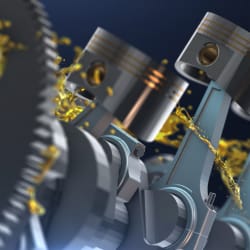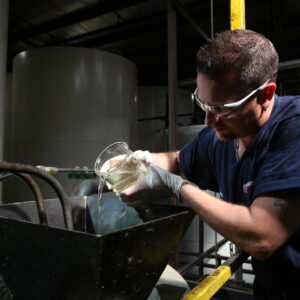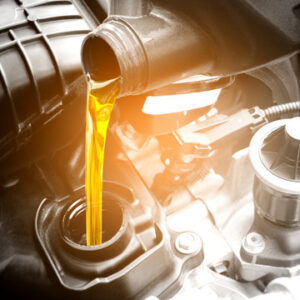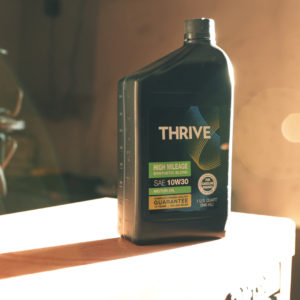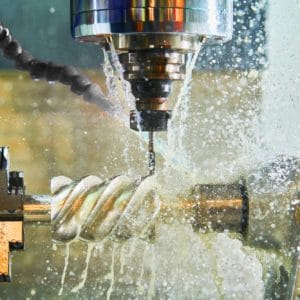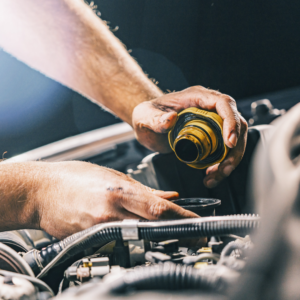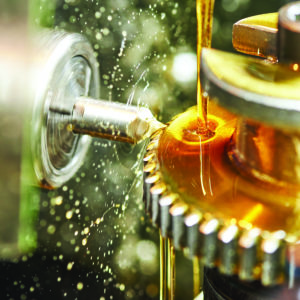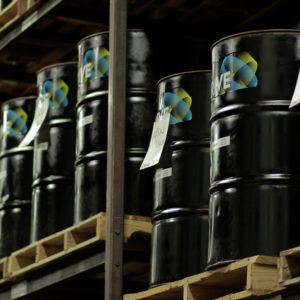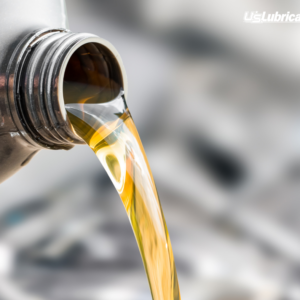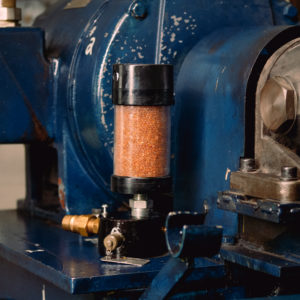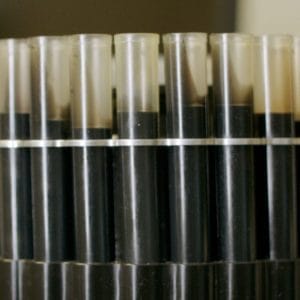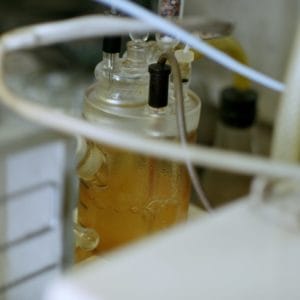U.S. Lubricants is commonly contacted by our industrial customers to perform a facility audit. These audits focus on identifying areas of neglect and provide solutions for operational efficiency. We pride ourselves in not only being a lubricant provider, but a provider of solutions to help our customers avoid unbudgeted repairs, decreased downtime, and allow production to meet/exceed demand.
How U.S. Lubricants Helped an Indiana Manufacturer
Recently, an exhaust and muffler manufacturer in southern Indiana contacted us to review their operations and perform hydraulic system leak checks. Upon initial contact, the maintenance manager expressed a concern about the amount of fluids being utilized at his facility. Based on the described paint points, we felt it necessary to perform a facility audit.
During the audit, our engineers identified a few pain points that needed to be addressed:
- Hydraulic oil consumption was uncharacteristically high for the facility
- Metalworking fluid contamination
- Maintenance spending too much time on lubrication
- Slip hazards from excessive amounts of oil on the ground
These pain points resulted in a reactive maintenance strategy rather than a proactive program. This reactive program was causing an increase in down time, an inefficient manufacturing operation, and sometimes an unsafe working environment. U.S. Lubricants goal was to move the customer toward a more proactive approach. We created a step by step procedure that consisted of identifying the equipment needed to fix the pain points and a detailed process for how to proactively manage equipment health. After outlining a plan, we worked with the customer to implement the solutions. At the end of the process we delivered the updated results, and had continued discussions on other problematic areas that we had also identified.
Positive results due to a collaborative Root Cause Corrective process, the customer now has the ability to:
- Reduce hydraulic oil consumption, freeing up maintenance personnel to deal with more pressing concerns
- Reduce the risk of metalworking fluid contamination, through
- Both reducing the risk of degrading a more expensive fluid and also reducing the risk of early tooling failure.
- Move their maintenance program to a more proactive model.
- Hydraulic oil that is not on the floor, but rather kept in the hydraulic system can be monitored for both fluid and machine health, which allows maintenance personnel to drive activities rather than respond to failure.
- Reduce and remove slip hazards so that employees can maneuver around their production cell without risk of slipping on oil.





